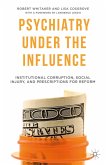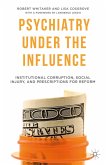Is our society color-blind? Trans-racial? Post-racial? And what-if anything-should this mean to professionals in clinical practice with diverse clients?
The ambitious volume The Concept of Race and Psychotherapy probes these questions, compelling readers to look differently at their clients (and themselves), and offering a practical framework for more effective therapy. By tracing the racial "folk taxonomies" of eight cultures in the Americas and the Caribbean, the author elegantly defines race as a fluid construct, dependent on local social, political, and historical context for meaning but meaningless in the face of science. This innovative perspective informs the rest of the book, which addresses commonly held assumptions about problem behavior and the desire to change, and presents a social-science-based therapy model, applicable to a wide range of current approaches, that emphasizes both cultural patterns and client uniqueness. Among the highlights of thecoverage:
Common elements in therapy and healing across cultures.The psychological appeal of racial concepts despite scientific evidence to the contrary.Lessons psychology can learn from anthropology.Three types of therapeutic relationships, with strategies for working effectively in each.The phenomenon of discontinuous change in brief therapy.Solution-focused therapy from a cross-cultural perspective.
Thought-provoking reading forpsychologists, psychiatrists, clinical social workers, and other mental health professionals as well as graduate students in these fields, The Concept of Race and Psychotherapy affirms the individuality-and the interconnectedness-of every client.
The ambitious volume The Concept of Race and Psychotherapy probes these questions, compelling readers to look differently at their clients (and themselves), and offering a practical framework for more effective therapy. By tracing the racial "folk taxonomies" of eight cultures in the Americas and the Caribbean, the author elegantly defines race as a fluid construct, dependent on local social, political, and historical context for meaning but meaningless in the face of science. This innovative perspective informs the rest of the book, which addresses commonly held assumptions about problem behavior and the desire to change, and presents a social-science-based therapy model, applicable to a wide range of current approaches, that emphasizes both cultural patterns and client uniqueness. Among the highlights of thecoverage:
Common elements in therapy and healing across cultures.The psychological appeal of racial concepts despite scientific evidence to the contrary.Lessons psychology can learn from anthropology.Three types of therapeutic relationships, with strategies for working effectively in each.The phenomenon of discontinuous change in brief therapy.Solution-focused therapy from a cross-cultural perspective.
Thought-provoking reading forpsychologists, psychiatrists, clinical social workers, and other mental health professionals as well as graduate students in these fields, The Concept of Race and Psychotherapy affirms the individuality-and the interconnectedness-of every client.
From the reviews:
"The Concept of Race and Psychotherapy makes creative and important contributions to understanding therapy as a social influence process, to broadening the definition of the social and cultural context of therapy, and to applying these insights clinically. Its discussion of race is particularly thorough, thought-provoking, and useful for understanding clients from varied cultural backgrounds. The book is highly recommended not only for therapists and therapists in training, but for psychologists and social scientists interested in race and social influence."
- Irving Kirsch
Professor of Psychology
University of Hull, England
"With a unique background in psychology and cross-cultural experience, Professor Jefferson Fish has written an important book that could not have been written by anyone else. The Concept of Race and Psychotherapy is a clear, highly readable, and insightful analysis of how race came to be a worldview in the United States. It is a cultural category that parades as universal and scientific. With assists from a careful reading of scientific and cross-cultural research, Fish skillfully explains why race is a local (cultural) idea rather than a scientific universal. This book will be of great use to anyone interested in how a cultural concept becomes powerful, the work that this particular concept does in distorting perceptions, and especially how race gets into fields of study, in this case psychology and psychotherapy."
- Alan Goodman
Vice President for Academic Affairs and Dean of Faculty, Hampshire College
Past President, American Anthropological Association
"A good course in anthropology teaches that biological races do not exist among humans but that culture is a real phenomenon that greatly influences human behavior. If anthropologists are correct, then many psychologists' assumptions that biological races are real and that humancultural influences on behavior are not extremely important are wrong. This should greatly influence psychotherapy. In this exceptional book, Fish discusses the concepts of race and culture, and explains why psychologists and psychotherapists need to take anthropological concepts into account in both theory and practice."
- Robert W. Sussman
Professor of Anthropology, Washington University, St. Louis
Editor Emeritus, American Anthropologist
Editor, Yearbook of Physical Anthropology
Secretary, Section H (Anthropology), American Association for the Advancement of Science
"This wide-ranging, thought-provoking book offers significant contributions to the theory and practice of therapy. By integrating ideas from cultural anthropology, systems theory, and mainstream psychology, The Concept of Race and Psychotherapy deepens our understanding of how creative, culturally-informed clinicians can foster successful problem resolution and behavior change. I found especially valuable the sections on solution focused therapy, discontinuous change, and why problem maintenance is usually more relevant to therapy than whatever may have 'caused' a problem in the first place."
- Michael J. Rohrbaugh
Professor of Psychology and Family Studies/Human Development
Director, Psychology Department Clinic
University of Arizona
"The text demonstrates an impressive summation of concepts from the social and natural sciences that serve to illuminate how culture influences the field of psychology with respect to the theory that underlies how psychologists practice. ... The Concept of Race and Psychotherapy is an essential and thought-provoking text for psychologists. ... provides information and perspective that every psychology trainee and professional should acknowledge and incorporate into psychological practice." (Maryam M. Jernigan, PsycCRITIQUES, Vol. 56 (26), June, 2011)
"The Concept of Race and Psychotherapy makes creative and important contributions to understanding therapy as a social influence process, to broadening the definition of the social and cultural context of therapy, and to applying these insights clinically. Its discussion of race is particularly thorough, thought-provoking, and useful for understanding clients from varied cultural backgrounds. The book is highly recommended not only for therapists and therapists in training, but for psychologists and social scientists interested in race and social influence."
- Irving Kirsch
Professor of Psychology
University of Hull, England
"With a unique background in psychology and cross-cultural experience, Professor Jefferson Fish has written an important book that could not have been written by anyone else. The Concept of Race and Psychotherapy is a clear, highly readable, and insightful analysis of how race came to be a worldview in the United States. It is a cultural category that parades as universal and scientific. With assists from a careful reading of scientific and cross-cultural research, Fish skillfully explains why race is a local (cultural) idea rather than a scientific universal. This book will be of great use to anyone interested in how a cultural concept becomes powerful, the work that this particular concept does in distorting perceptions, and especially how race gets into fields of study, in this case psychology and psychotherapy."
- Alan Goodman
Vice President for Academic Affairs and Dean of Faculty, Hampshire College
Past President, American Anthropological Association
"A good course in anthropology teaches that biological races do not exist among humans but that culture is a real phenomenon that greatly influences human behavior. If anthropologists are correct, then many psychologists' assumptions that biological races are real and that humancultural influences on behavior are not extremely important are wrong. This should greatly influence psychotherapy. In this exceptional book, Fish discusses the concepts of race and culture, and explains why psychologists and psychotherapists need to take anthropological concepts into account in both theory and practice."
- Robert W. Sussman
Professor of Anthropology, Washington University, St. Louis
Editor Emeritus, American Anthropologist
Editor, Yearbook of Physical Anthropology
Secretary, Section H (Anthropology), American Association for the Advancement of Science
"This wide-ranging, thought-provoking book offers significant contributions to the theory and practice of therapy. By integrating ideas from cultural anthropology, systems theory, and mainstream psychology, The Concept of Race and Psychotherapy deepens our understanding of how creative, culturally-informed clinicians can foster successful problem resolution and behavior change. I found especially valuable the sections on solution focused therapy, discontinuous change, and why problem maintenance is usually more relevant to therapy than whatever may have 'caused' a problem in the first place."
- Michael J. Rohrbaugh
Professor of Psychology and Family Studies/Human Development
Director, Psychology Department Clinic
University of Arizona
"The text demonstrates an impressive summation of concepts from the social and natural sciences that serve to illuminate how culture influences the field of psychology with respect to the theory that underlies how psychologists practice. ... The Concept of Race and Psychotherapy is an essential and thought-provoking text for psychologists. ... provides information and perspective that every psychology trainee and professional should acknowledge and incorporate into psychological practice." (Maryam M. Jernigan, PsycCRITIQUES, Vol. 56 (26), June, 2011)









